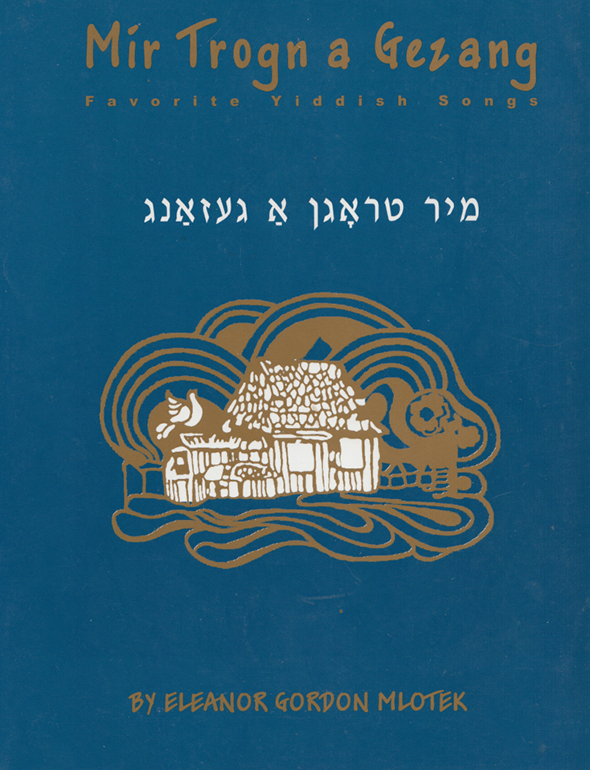This song, text and music by S. Shmulewitz (1868-1943) was one of the most beloved songs of the immigration era on both sides of the Atlantic.

My child, my comforter, you are going away.
Look, be a good son,
I am asking you with fear and with tears
your dear, faithful mother.
You are traveling, my only child,
across the wide seas;
just arrive there in the best of health
and do not forget your mother.
Yes! Travel in good health and with good luck.
And do send a letter every week,
to brighten, my son, your mother’s soul.
A letter to your mother,
do not delay too long,
write quickly, dear child,
give her this consolation.
Your mother will read your letter
and she will get well,
you’ll heal her pain, her bitter heart,
and brighten her soul.
Mayn kind, mayn treyst, du forst avek,
Ze zay a zun a guter,
Dikh bet mit trern un mit shrek
Dayn traye libe muter.
Du forst, mayn kind, mayn eyntsik kind,
Ariber vayte yamen;
Akh kum ahin nor frish gezunt
Un nit farges dayn mamen.
Yo! for gezunt un kum mit glik.
Ze yede vokh a brivl shik,
Dayn mames harts, mayn kind, derkvik.
A brivele der mamen
Zolstu nit farzamen,
Shrayb geshvind, libes kind,
Shenk ir di nekhome.
Di mame vet dayn brivele lezn
Un zi vet genezn,
Heylst ir shmarts, ir biter harts,
Derkvikst ir di neshome.
מײַן קינד, מײַן טרײסט, דו פֿאָרסט אװעק,
זע, זײַ א זון אַ גוטער,
דיך בעט מיט טרערן און מיט שרעק
דײַן טרײַע ליבע מוטער.
דו פֿאָרסט, מײײַן קינד, מײַן אײנציק קינד,
אַריבער װײַטע ימען;
אַך קום אַהין נאָר פֿריש געזונט
און ניט פֿאַרגעם דײַן מאַמען.
יאַ! פֿאָר געזונט און קום מיט גליק,
זע יעדע װאָך אַ בריװל שיק,
דײַן מאַמעס האַרץ, מײַן קינד, דערקװיק.
אַ בריװעלע דער מאמען
זאָלסטו ניט פֿאַרזאַמען,
שרײַב געשװינד, ליבעם קינד,
שענק איר די נחמה.
די מאַמע װועט דײַן בריװעלע לעזן
און זי װועט גענעזן,
הײלסט איר שמאַרץ, איר ביטער האַרץ,
דערקװיקסט איר די נשמה.
Song Title: A Brivele Der Mamen

First published in 1972, Mir Trogn A Gezang: Favorite Yiddish Songs was reprinted six more times (in 1977, 1982, 1985, 1987, 1988, 2000) due to popular demand. The songs in this anthology represent a sampling of beloved folk and well-known Yiddish songs, many of which are scattered in various song collections; some appear in very rare and inaccessible collections; and some were never before published. Folk songs comprise about a third of this volume and were selected mainly on the basis of popularity and sometimes for their historic significance. Needless to say, they are only representative of the vast, rich treasure of Yiddish folk material. The selection was made not only on the basis of personal preference, but in the knowledge they are favorites of many who sing these songs. Most of the songs represent the repertoire that was sung at Yiddish summer camps, May 1st demonstrations and at social gatherings. Many songs were introduced to American Jewry by Jewish immigrants who came to the United States after World War II, for whom these songs had been favorites in Poland and other East European communities destroyed by the Nazis.